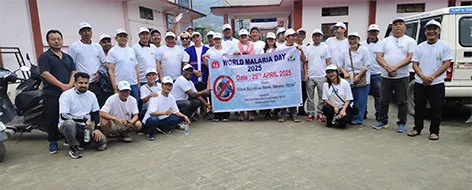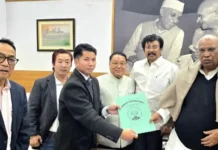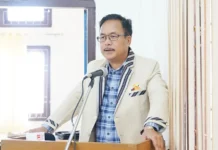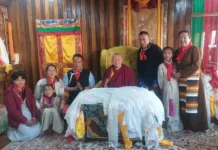ITANAGAR, 25 Apr: Sixteen out of the 27 districts in Arunachal Pradesh have been declared malaria-free, a health official said.
Speaking at the World Malaria Day-2025 celebrations organised by the National Centre for Vector Borne Disease Control (NCVBDC) in Naharlagun on Friday, Health Services Deputy Director Dr KT Mulung praised the tireless efforts of health workers, community volunteers and field staffers who made it possible.
Dr Mulung, who is also the NCVBDC state programme officer, reiterated the department’s commitment to achieving a malaria-free Arunachal by 2027.
The malaria-free districts are Tawang, West Kameng, East Kameng, Pakke-Kessang, Lower Subansiri, Kra Daadi, Kurung Kumey, Kamle, Upper Subansiri, Dibang Valley, Anjaw, East Siang, Siang, Namsai, Longding and Lower Dibang Valley.
On the occasion, Health Services Director Dr Rikken Rina administered a pledge, where the participants promised to continue the fight against malaria.
A short video on malaria was also screened, showcasing impactful stories.
In East Kameng district, the Medical Department observed the World Malaria Day on Friday by organising a cleanliness drive targetting mosquito breeding sites across the district.
As part of the campaign, sanitation teams cleaned canals, dustbins, and roadside drains – areas identified as potential grounds for the spread of malaria. The initiative aimed to raise awareness and promote preventive action among residents, emphasising the importance of environmental hygiene in combating vector-borne diseases.
Medical officials, frontline workers, and local volunteers actively participated in the drive, reflecting a collective commitment towards a malaria-free district. The campaign also disseminated key health messages, encouraging the use of mosquito nets, elimination of stagnant water, and early medical consultation in case of symptoms.
The district medical officer called upon the public to remain vigilant and adopt preventive measures, highlighting that “malaria is both preventable and curable with timely action and community involvement.” (PTI, with DIPRO input)




